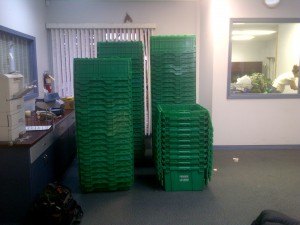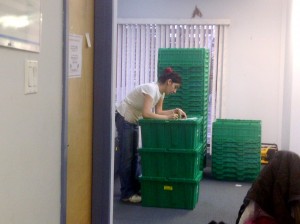Our Packing Standards
Coronavirus hasn’t changed how we work, but it has emphasized the standards we have upheld at “Vancouver In The Box” for a decade.
1. Packing with cardboard boxes
Since our first day in the packing business, it’s been our role to bring new cardboard boxes to our clients.
We never transfer boxes from house to house. Not only because of the coronavirus – but also to avoid bringing bugs or pet hair into a new home. Bugs can live inside cardboard boxes and they can be difficult to discover.
2. Packing with reusable plastic boxes
When using reusable boxes we work with suppliers to make sure that every box is clean and sanitized.
Our suppliers remove any trash left in boxes, spray them with compressed air to get rid of dust, and wipe them down with biodegradable, non-toxic cleaner and sanitizer, both inside and out.
3. Wrapping paper
Even before the coronavirus outbreak, we’ve never reused paper between jobs. We don’t think it’s right to re-use paper and potentially spread germs or dust from one house to another.
4. Personal protection
Our professional packers are all provided with disposable gloves for their own protection. These days, it’s mandatory to use disposable gloves. Our packers replace their gloves frequently throughout the workday.
Only healthy employees will enter your home. Because we work in people’s most personal spaces such as bedrooms, kitchens and bathrooms, we make sure all of our employees stay home even if they have a simple cold. All sick employees are told to stay home and rest.
We pack – you relax.



